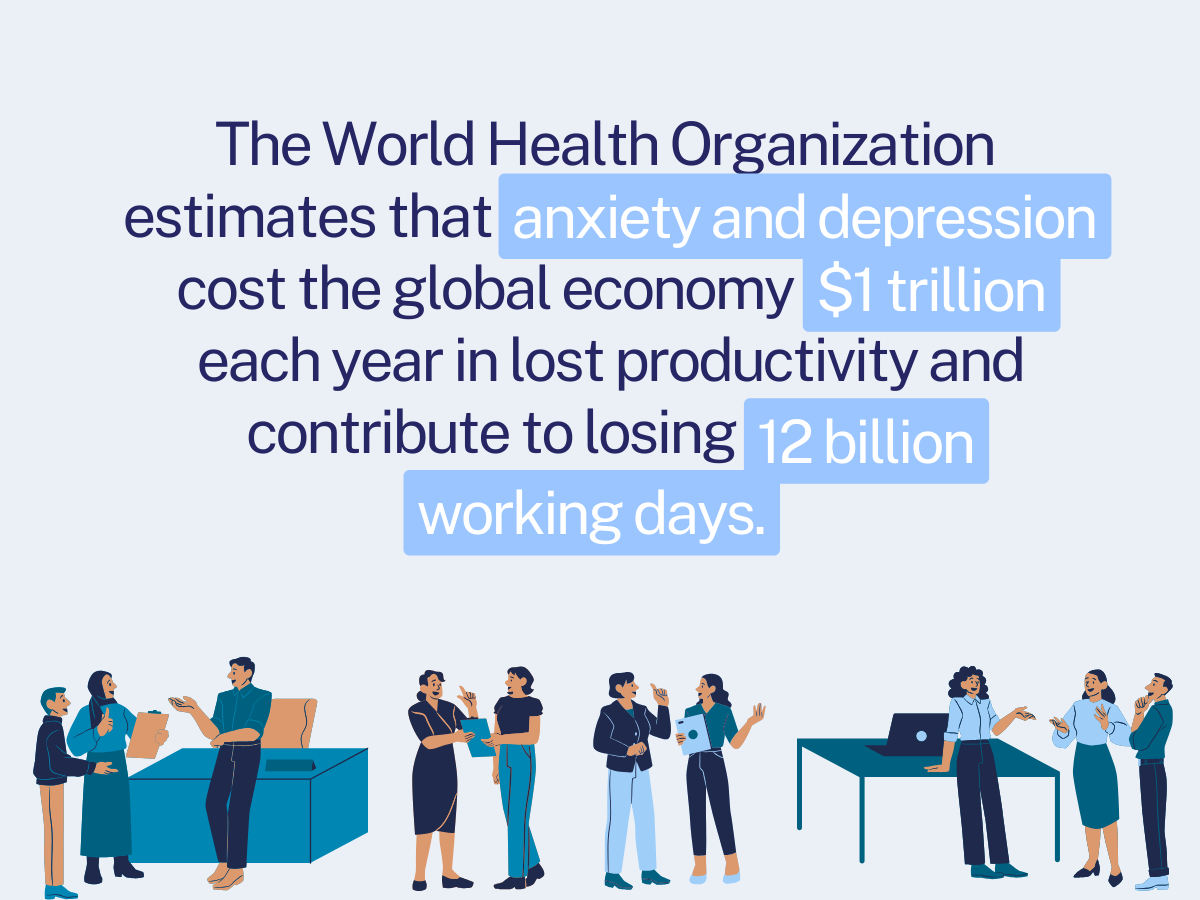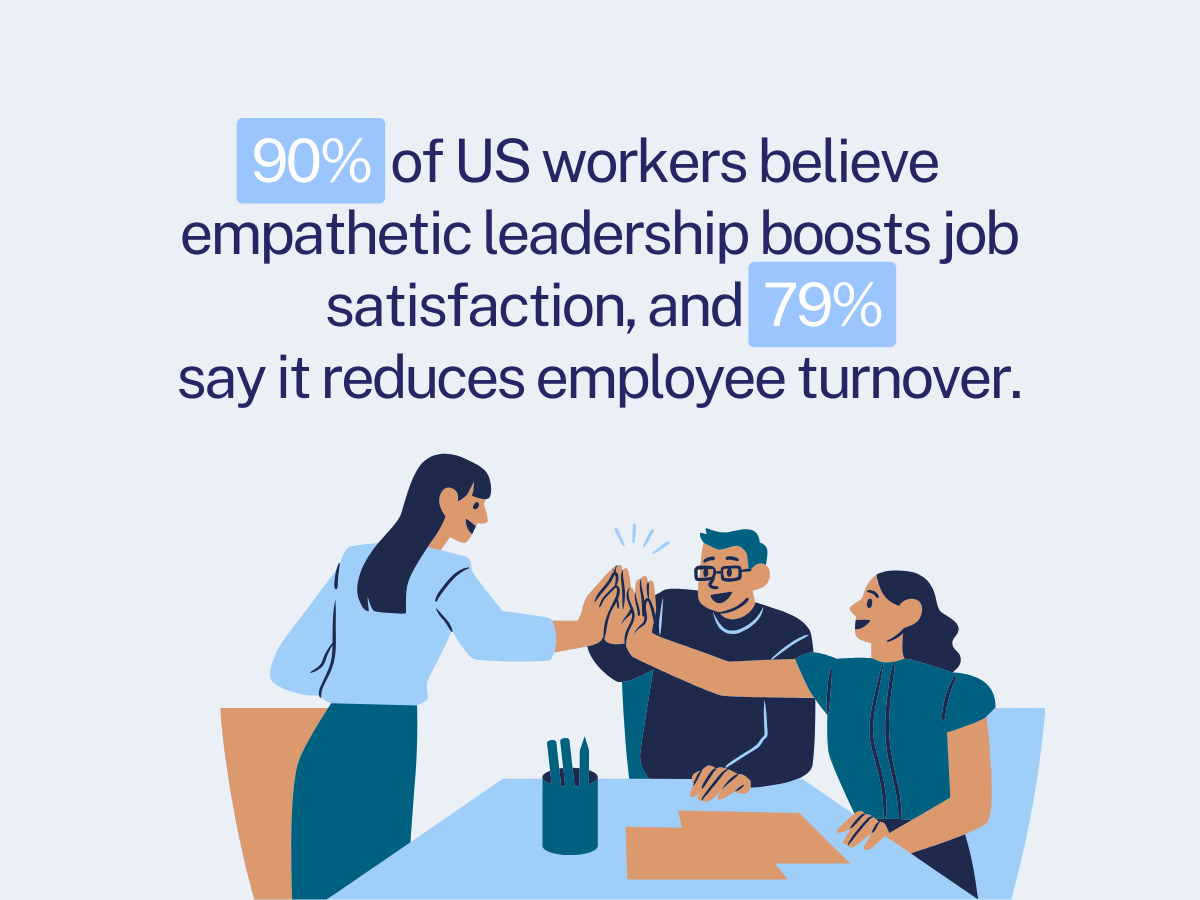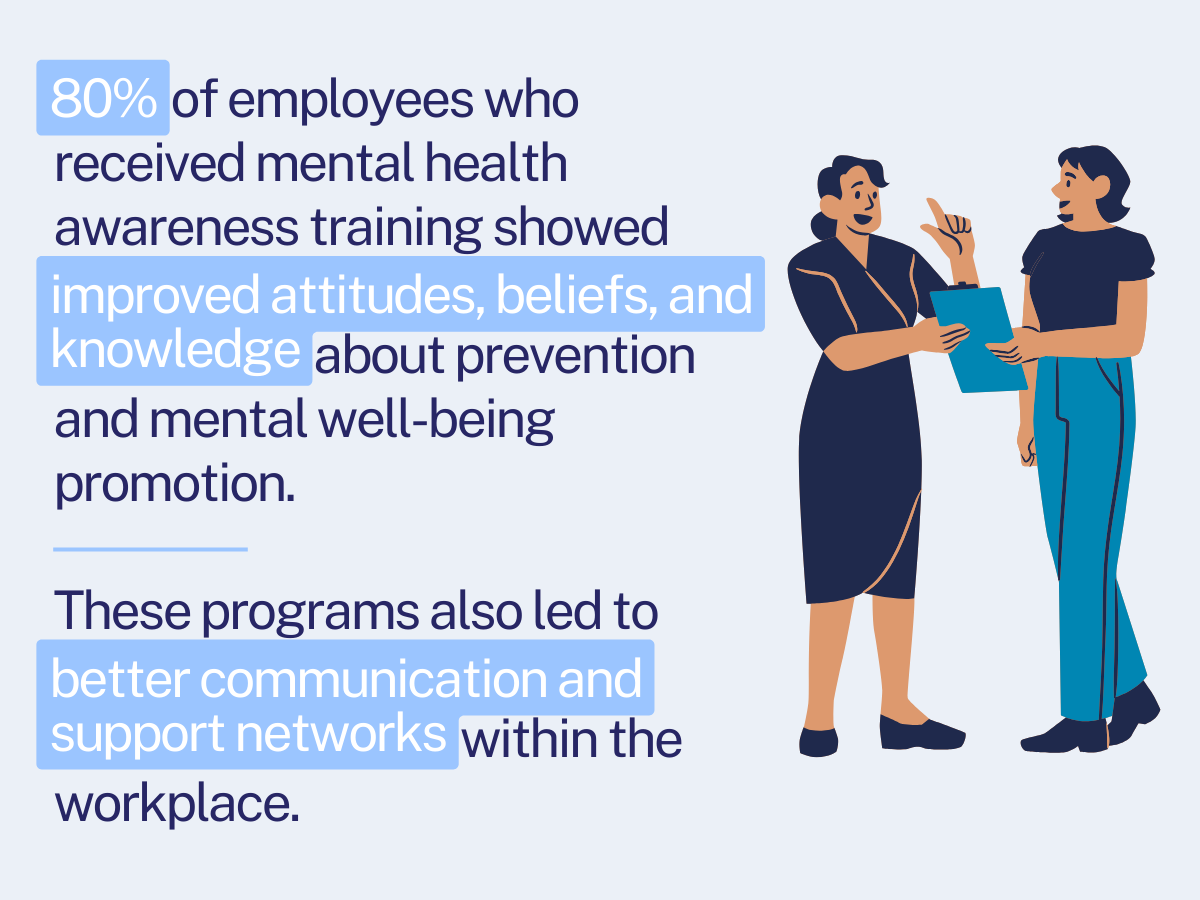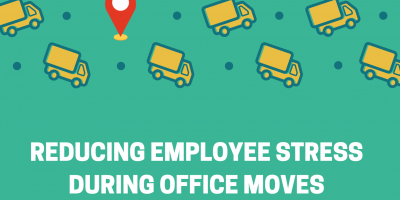
The Effects of Substance Abuse in the Workplace
From decreased productivity to poor workplace relationships – gain insights on recognizing, addressing, and mitigating the consequences of substance abuse at work.


Clinical Director of Bloom Clinical Care Counselling and Therapy

Licensed Therapist (LPCC) & Founder of Counseling Unconditionally

Clinical Psychologist at Balanced Wellbeing
Reported rates of mental health disorders have been on the rise for the past decade.
The good news is that, as research indicates, this increase was mainly due to “improved recognition.” In other words, as awareness increases, we see more accurate reporting on this.
The bad news, however, is this also contributed to “overinterpretation,” or perceiving common psychological experiences as mental health problems. Explained as a self-fulfilling prophecy, this leads to behaviors that may worsen symptoms and increase stigma. Stereotypes are also to blame, as over 30% of people still hold the stigmatizing belief that a weak personality causes depression.
So, while efforts are clearly being made to change the narrative, navigating between the challenges requires careful consideration and strategic planning.
As a significant contributor to awareness, the workplace is looking for a solution in mental health training for employees. At the same time, recognizing the need for a more compassionate approach to an already sensitive subject, some companies have turned to empathy-based methods in their initiatives.
In light of this trend, this Shortlister article explores the main aspects of mental health training in the workplace, including its significance, key components, and implementation.
According to the National Institute of Mental Health, mental illnesses affect one in five adults in the United States.
Often overlooked because of their “invisible” nature, they can go undetected in the workplace, intensifying the consequences for those struggling with an illness, their colleagues, and the organization.
At the same time, knowing but not fully comprehending these conditions may increase the already widespread stigma and divert resources from those who genuinely need it.
Thus, the importance of mental health training for employees is apparent.
It equips workers with skills to better recognize signs of mental health issues, in and outside the workplace, especially serious mental illnesses (SMI) and serious emotional disturbances (SED).
Correct interpretation also helps individuals respond effectively, whether this affects them or their coworkers. At the same time, it tackles the stigma by creating a safe space both for those who are openly or privately dealing with an illness.
Ultimately, these benefits come full circle for employers, who, by bettering employee well-being, ensure the organization’s long-term success and sustainability.

A healthy employee is a happy one.
Beyond a cliché phrase, the importance of workplace mental health training is evident in the way it merges individual and organizational outcomes.
How employees feel is intertwined with how they perform at work.
Simultaneously, how employers tackle their workers’ well-being determines if and how they drive organizational growth.
Research shows that a toxic or high-pressure work culture with unrealistic expectations or poor leadership can lead to stress, depression, and burnout. On top of that, when workers struggle with mental health issues, focusing on tasks, making decisions, and managing workloads becomes a challenge. Coming full circle, this also affects employers since productivity plummets while absenteeism rises.
In fact, the World Health Organization (WHO) estimates that anxiety and depression alone cost the global economy $1 trillion each year in lost productivity. They also contribute to losing 12 billion working days.
Thus, by prioritizing workplace mental health support, tools, and resources, organizations can enhance employee well-being, boost morale, and cultivate a positive workplace culture prone to productivity and growth.



Whether as a standalone solution or part of a wellness program, mental health training in the workplace should be implemented tocomplement an empathy-based and inclusive environment.
That means companies mustn’t see it as a “one-time fix,” according to Vikas Keshri, the Clinical Director at Bloom Clinical Care Counselling and Therapy.
“It’s more like building a culture of support,” Keshri adds.
“Effective training is ongoing, and it’s paired with clear communication about resources like Employee Assistance Programs. This way, employees feel comfortable using those resources and know they won’t be judged for prioritizing their mental well-being.“
Concurring with this viewpoint, Courtney Morgan, a Licensed Therapist (LPCC) & Founder of Counseling Unconditionally, adds: “It is most effective when mental health training is done over time and progressively built upon. It often takes repetition for information to sink in, and people may have varying needs over time.
Creating space for training will often allow for deeper understanding and quality results.“
To do that, companies are transitioning to an empathetic approach that transforms mental health education into awareness and acceptance.

Empathy involves comprehending and resonating with other people’s emotions. It hinges on perspective-taking, where one grasps another’s thoughts and feelings to anticipate their actions and reactions.
In the workplace, it’s one of the most valuable skills to have.
For example, according to an EY survey, 90% of U.S. workers believe empathetic leadership boosts job satisfaction, and 79% say it reduces employee turnover.
In the mental health conversation, this approach strengthens awareness by giving depth and understanding beyond words and definitions.
In fact, research demonstrates a positive correlation between mental health literacy and empathy, with empathic concern and perspective-taking showing the strongest connection.
Thus, redefining corporate mental health initiatives mandates active listening, compassion, and understanding.
“It is helpful to begin by creating space for employees to assess their mental well-being,” explains Courtney Morgan.
“After assessing how they’re doing, it is important to explore ways to cope with daily stressors and navigate complex situations with empathy and acceptance.“
Rather than speaking at them, an approach based on empathy speaks to employees. In return, this can successfully break the stigma, all while educating and spreading awareness.

Studies show that stigma was the fourth highest-ranked barrier to seeking help.
Since it can stem from many factors, including personal encounters and internalized shame, societal perception, or deeper structural issues, addressing it in the workplace requires a proactive approach rooted in compassion and inclusiveness.
That way, organizations can foster a culture of acceptance and inclusivity where everyone feels valued and supported in their mental health journey.
As a licensed therapist and mental health expert, Courtney Morgan explains: “A comprehensive mental health training program should destigmatize mental health, create awareness about resources available, and work to develop a healthy working environment.”
So, what are the key components of a program designed to achieve these goals?

While a mental health training program may differ based on employee needs, its key components typically include mental health education, coping strategies, support resources, and implementation guidance.
Employee resilience training, peer support programs for mental health, emotional intelligence training, and burnout prevention strategies are just some examples.
However, to dive deeper into the elements of a successful program, we spoke with Dr. Monica Vermani, a clinical psychologist at Balanced Wellbeing.
Explaining her stance on what these programs should offer, Dr. Vermani separates the key components of workplace mental health training for all employees and a unique program for team leaders and managers.
For workers, she suggests the following:
As for team leaders and managers, she reiterates the importance of psychoeducation and argues that their training should empower a better understanding of symptoms, their manifestation, and how they impact employee performance, engagement, productivity, and team cohesion.
“With a greater understanding and awareness, managers and team leaders can respond with compassion and empathy and offer support to employees and teams.
When they understand the importance of their role in building rapport and trust, they are better able to cultivate healthy team dynamics and a supportive workplace where individuals struggling with mental health concerns and conflicts feel understood and supported“, concludes Dr. Vermani.
Following everything that was said, the benefits are apparent.
For one, increasing awareness while reducing stigma is the main goal in and outside the workplace. Better recognition, access to resources, and an overall improvement in well-being are also direct consequences of mental health training for employees.
In fact, according to the Substance Abuse and Mental Health Services Administration (SAMHSA), 80% of individuals who received mental health awareness training showed improvement in their attitudes, beliefs, and knowledge related to prevention and mental well-being promotion.
Additionally, these programs promote better communication and support networks within the workplace.
On the other hand, employers play a significant role in the collective awareness of mental well-being and creating a culture of inclusivity, which is then reciprocated with increased productivity and retention and lower absenteeism.

To ensure the success of mental health programs in the workplace and their benefits, organizations can implement several strategies to overcome the challenges of overinterpretation and stereotyping.
Vikas Keshri points out two crucial ones.
“First, it should address the stigma.
We all know resources exist, but fear of judgment keeps people quiet. Training that openly discusses mental health and normalizes seeking help is key.
Second, it should go beyond crisis response.
While knowing how to handle a suicidal person or panic attack is crucial, teaching employees to recognize early warning signs and manage everyday stress is just as important. This empowers them to take care of themselves before things escalate.“
Beyond these two foundational elements, additional strategies that leverage the program’s effectiveness include:
As awareness grows, we are witnessing a shift in priorities among generations.
Research shows that younger workers were more likely to leave their roles due to mental health reasons, or half of Millennials and 75% of Gen Z, against the average of 34%.
However, the majority agreed on the importance of company culture. Namely, 86% of respondents wanted company cultures to support mental well-being, with an even higher percentage among Millennials and Gen Z.
“Today, leading organizations recognize the importance of mental health training and support in creating a kinder, more compassionate corporate culture and working environment,” says Dr. Monica Vermani.

Although the state of mental health is nowhere near satisfactory, it’s clear that awareness is growing.
Building the workplace on empathy is one aspect that keeps the conversation going. It creates compassionate workers and leaders who practice non-judgmental support.
Ultimately, empathy-based mental health training for employees holds significant value for companies that prioritize well-being, helping them reduce stigma and support their workforce, all while growing their productivity and retention.
Disclosure: Some of the products featured in this blog post may come from our partners who compensate us. This might influence the selection of products we feature and their placement and presentation on the page. However, it does not impact our evaluations; our opinions are our own. The information provided in this post is for general informational purposes only.
Content Writer at Shortlister
Browse our curated list of vendors to find the best solution for your needs.
Subscribe to our newsletter for the latest trends, expert tips, and workplace insights!

From decreased productivity to poor workplace relationships – gain insights on recognizing, addressing, and mitigating the consequences of substance abuse at work.

To say that ADHD in the workplace is intricate would be an understatement. Explore what ADHD means for all involved parties and the best tools and strategies for ADHD in the workplace.

Explore the most recent divorce statistics that paint a clear picture of the institution of marriage in the US.

HR managers have a unique opportunity to make employees’ lives easier during a stressful office move.
Used by most of the top employee benefits consultants in the US, Shortlister is where you can find, research and select HR and benefits vendors for your clients.
Shortlister helps you reach your ideal prospects. Claim your free account to control your message and receive employer, consultant and health plan leads.